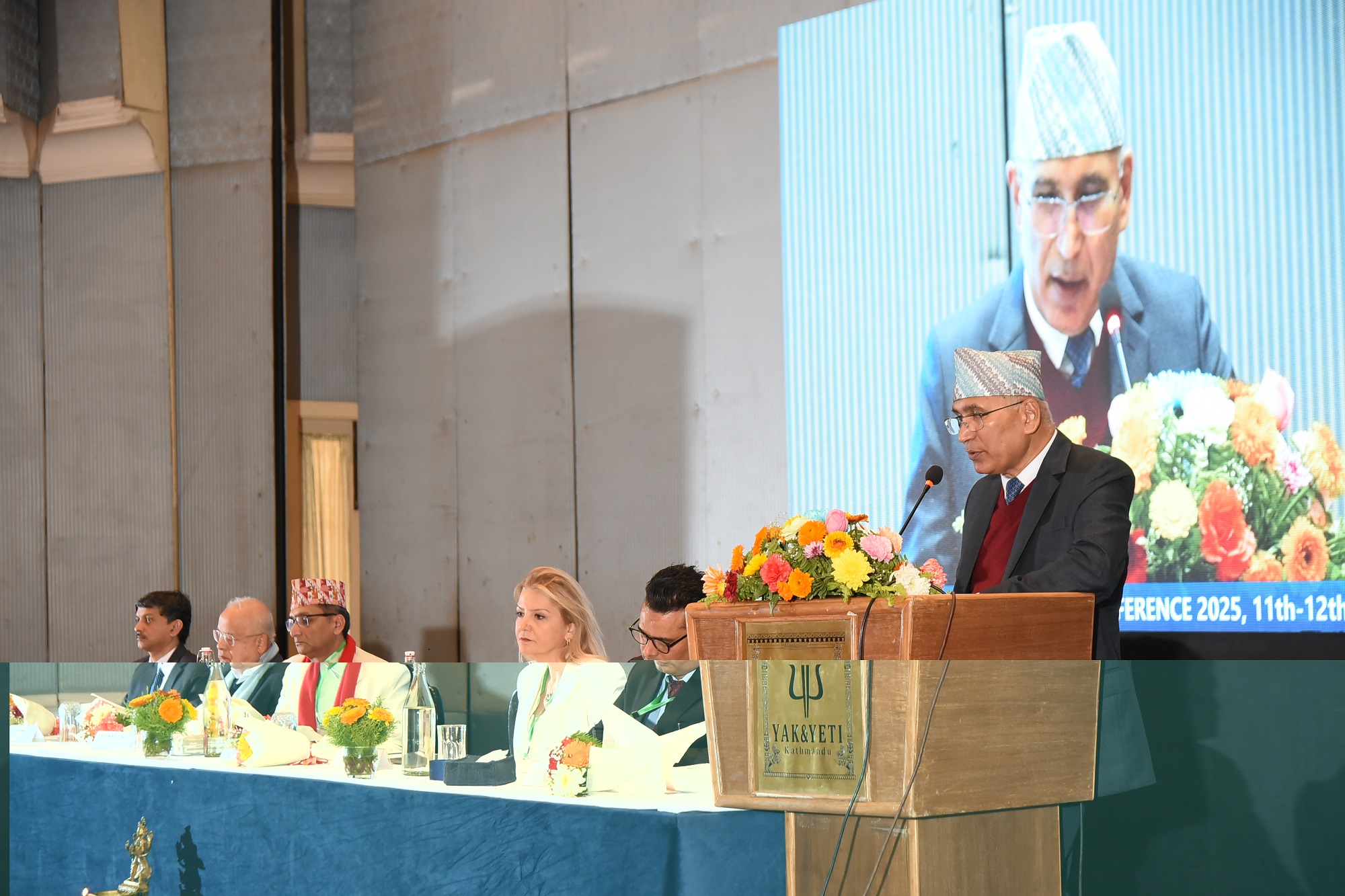Kathmandu– A delicate balance between trade and environmental policies is essential for creating a resilient and non-disruptive global supply chain that benefits all equally, said the speakers at the WCP Nepal 3rd Annual Conference on Climate Change and Trade Sustainability in South Asia.
The conference was hosted by the WTO Chairs Program – Nepal at Kathmandu University School of Management, in collaboration with WCP – India, Centre for Trade and Investment Law (CTIL), Indian Institute of Foreign Trade (IIFT), New Delhi, and the Faculty of Management, Purbanchal University, Biratnagar.
“If the entirety of the economic ecosystem is not sustainable, trade sustainability is not easily achievable,” said Professor Achyut Wagle, registrar at Kathmandu University and chair of the WTO Chairs Programme Nepal, during the inaugural session of the two-day event in Kathmandu.
Finance Minister Bishnu Prasad Poudel emphasized that Nepal is at high risk from climate change, with its impacts clearly visible across the economic, social, and infrastructure sectors, though Nepal’s contribution to climate change remains negligible. “We must take more proactive measures in climate-friendly development processes, considering the disruptions to supply chains caused by recurring natural disasters such as floods, landslides, and earthquakes, which affect the infrastructure we have built with significant investment,” Poudel said.
Ram Prasad Subedi, Nepal’s Ambassador and Permanent Representative to the UN in Geneva, citing the WTO Trade Statistical Review 2023, noted that South Asia’s share of global merchandise exports was 2.23 percent, while imports accounted for 3.61 percent in 2022. “This means that one-fourth of the world’s population is fulfilling its needs, with some exceptions, through imports of goods and services from the global market,” Subedi explained.
“As two South Asian countries, Nepal and Bangladesh, are scheduled to graduate from the LDC category in 2026, it is crucial to maintain some flexibility in WTO rules for a few more years to ensure a smooth, sustainable, and irreversible graduation,” Subedi added.
Dev Raj Joshi, joint secretary of the Ministry of Industry, Commerce, and Supplies, stated, “As we work toward graduating from LDC status, it is even more crucial to align our trade policies with environmental sustainability to ensure that we are not only economically prosperous but also environmentally responsible.”
Professor James J. Nedumpara, head of the Centre for Trade and Investment Law and India chair of the WTO Chairs Programme, highlighted the need for regional collaboration to address global trade challenges and the transition to a green economy as climate change impacts people worldwide.
Xiangchen Zhang, deputy director-general of the WTO, said “I invite stakeholders to consider engaging in a potential environmental goods and services agreement which may be limited in scope but it will help advance the green transition and fight climate change,” Zhang said. “Additionally, the capabilities of AI, precision farming, and innovative water science could contribute to food security and sustainable agriculture, bringing us closer to agreements that ensure a nourished and sustainable future.”
The speakers urged moving forward with the green transition by developing clean energy, establishing environmentally friendly technologies, digitalizing commercial services, strengthening ICT infrastructure, and integrating the production of MSMEs into e-commerce platforms, all while progressing toward trade sustainability.


